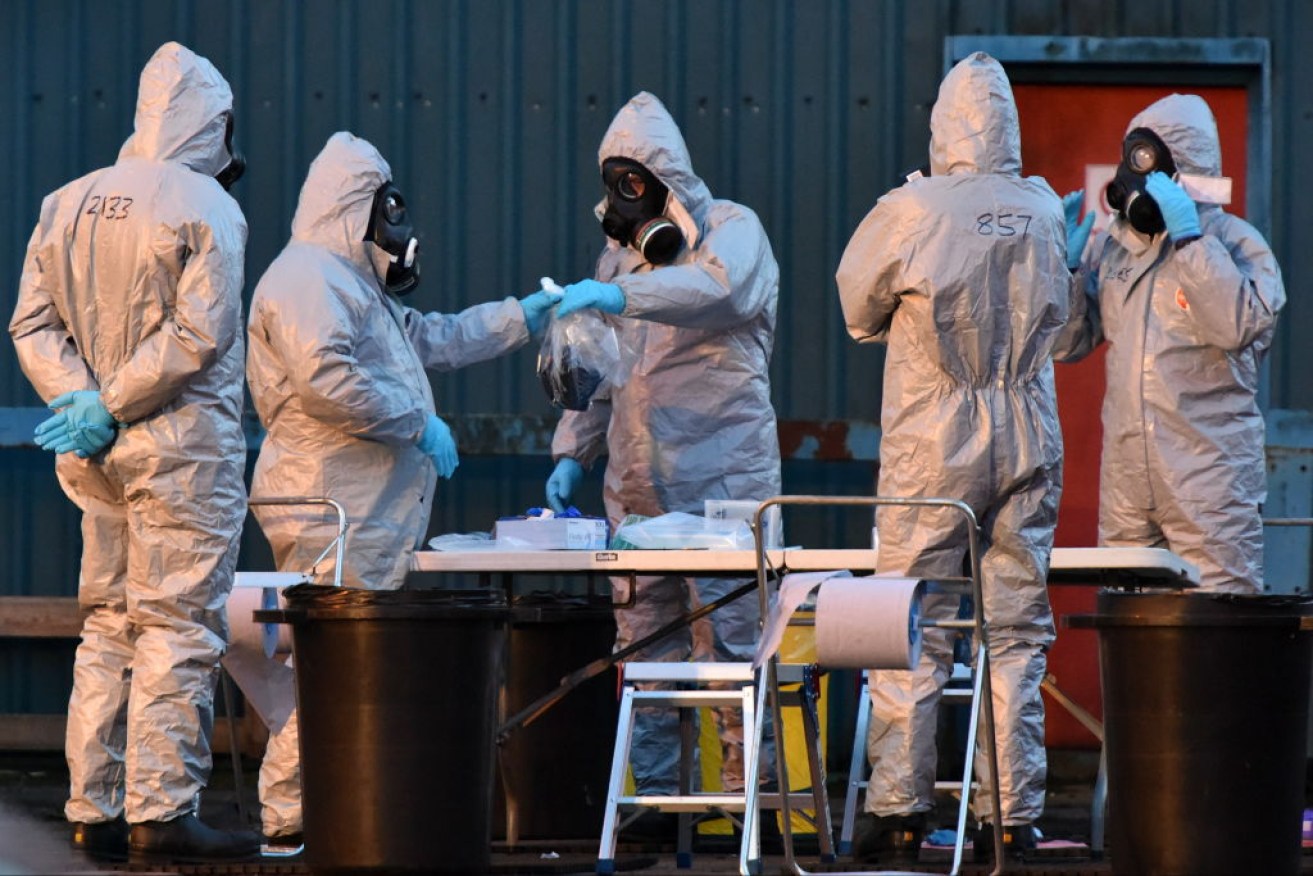UK chemical experts join investigation into Russian spy nerve-agent attack

Russian dissident Sergei Skripal and his daughter Yulia were poisoned in Salisbury England in March by suspected Russian agents. Russian denied involvement even as Britain provided extensive proof. Photo: Getty
Dozens of khaki-clad troops trained in chemical warfare have been deployed on the streets of the usually sleepy English city of Salisbury as part of the investigation into the nerve-agent poisoning of a former Russian spy and his daughter.
The sight of the soldiers, and forensic experts in bright yellow hazmat suits, added to the increasingly surreal scenes in a city best known for its towering medieval cathedral and its proximity to the ancient Stonehenge monument.
Sergei Skripal and his daughter Yulia, 33, were found unconscious on a bench near the River Avon in the city on Sunday.
They remained in critical condition in a local hospital on Friday, poisoned with what authorities say is a rare nerve agent.
A police officer who helped investigate was in serious condition, and a total of 21 people have received medical treatment.
Skripal, a former Russian military intelligence officer, was convicted in 2006 of spying for Britain and released by Moscow in 2010 as part of a spy swap.
The 66-year-old former agent had been living quietly in Salisbury, 140 kilometres southwest of London.
Counterterrorism detectives are leading a vast investigation.
One line of inquiry is whether the pair were poisoned at Skripal’s modest suburban house before going out for Sunday lunch and a visit to a pub.
On Friday, police called in about 180 marines, soldiers and air force personnel with expertise in chemical weapons, decontamination and logistics to help with the probe and to remove vehicles that might be contaminated.
Military vehicles arrived at Salisbury District Hospital, where the victims are being treated, to take away a police car.
Authorities say there is no risk to the general public from the attack.
Retracing Skripals movements
Unlike radioactive poisons, nerve agents dissipate quickly.
Detectives were retracing the Skripals’ movements as they try to discover how the toxin was administered and where it was manufactured.
Authorities cordoned off Skripal’s house, a car, a restaurant, a pub and the cemetery where Skripal’s wife, Lyudmila, is buried and where there is also a memorial headstone for his son, Alexander.

Sergei Skripal was granted refuge in the UK following a ‘spy swap’ between the US and Russia in 2010. Photo: Getty
Lyudmila Skripal died of cancer in 2012. Alexander died last year at the age of 43. The cause is unclear: some reports say he died in a car accident while on holiday in Russia, others that he died of liver failure.
At the graveyard, forensic officers in protective gear could be seen erecting a blue tent on Friday.
Former London police chief Ian Blair said on Friday the police officer who is seriously ill had visited Skripal’s house, suggesting the nerve agent may have been delivered there.
Chief Blair told BBC radio that Detective Sergeant Nick Bailey had “actually been to the house, whereas there is a doctor who looked after the patients in the open who hasn’t been affected at all. There may be some clues floating around in here.”
-AAP








